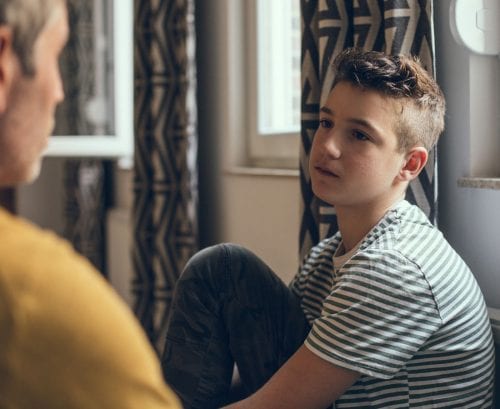
Depression and anxiety symptoms in children and adolescents have doubled during the COVID-19 pandemic, according to a new study.
The analysis of 29 studies of 80,879 youth across the globe found the prevalence of child and adolescent mental illness has increased significantly during the pandemic, with depression reaching just over 25 per cent and anxiety at just over 20 per cent.
Before the pandemic, clinically significant generalised anxiety and depressive symptoms in large youth cohorts were approximately 11.6 per cent and 12.9 per cent, respectively.
“Pooled estimates obtained in the first year of the COVID-19 pandemic suggest that one in four youths globally are experiencing clinically elevated depression symptoms, while one in five youths are experiencing clinically elevated anxiety symptoms,” the research published in JAMA Pediatrics says.
Everyday life disrupted
Social isolation, missed milestones, school closures and increased family stress are the kinds of factors that can potentially contribute to mental health difficulties in young people, the researchers say.
Young people living in regions that had major COVID outbreaks or in urban areas have greater mental illness severity, the study says, and older youths and females appear to be more affected.
Intervention and recovery efforts to help young people with their mental health should be targeted with these demographics in mind, the researchers say.
Study limitations
The research was a meta-analysis using data from 29 different studies. The reliability of this sort of study depends on the quality of the individual studies being analysed.
In this instance, data from underrepresented countries were not available. The authors also say most of the studies were cross-sectional, meaning the data were from a particular point in time, so when more long-term studies become available the findings may change.
There was also an underrepresentation of racial or ethnic minorities and gender-diverse youth in the data. These groups are often at higher risk of mental health difficulties.
8 ways you can help your child
If your child is experiencing depression or anxiety symptoms, it’s very important to get help for them. The first port of call is your GP or family doctor, who will, hopefully, be able to refer you to mental health services.
Unfortunately, many mental health services were already stretched prior to the pandemic so, in some regions, the wait times for access to services can be lengthy.
- If you’re forced to wait to get appropriate treatment for your child, make sure to let them know you are taking their feelings seriously and will be there to support them.
- Educate yourself about child mental health by using resources from credible sources. A good place to start is your local Mental Health Foundation, or check your health ministry’s site for recommendations. You can also ask your GP if they can recommend any reading. Look at the qualification of the person writing, or being interviewed for, the resource or article. Check for references back to respected journals such as JAMA, the Lancet, Nature, etc.
- Listen to your child without judgment or interruption. Let them know you are trying to understand what they are experiencing, even if it differs from your own experience, by giving them your full attention and accurately paraphrasing what they’ve said back to them.
- Try to keep a good routine going, to provide a sense of stability and familiarity.
- Keep inviting your young person to participate in family activities, even if they don’t show interest most of the time. Knowing you want them to be part of things is enough.
- If your child is willing, try to encourage regular exercise and time outside. Doing this as a family can make it more fun and less daunting for a young person who is unwell.
- Try to celebrate the small achievements your child makes, if they’re struggling with day-to-day activities. These achievements might be as small as managing to take a shower, if they are depressed, or making an arrangement to see a friend, if they are anxious.
- If your loved one is suicidal, call your local crisis team immediately. Remove any items that may be used to harm themselves from the immediate environment and keep a respectful eye on them until help arrives.
NZ helplines
Need to talk? Free call or text 1737 any time for support from a trained counsellor.
Lifeline 0800 543 354 (0800 LIFELINE) or free text 4357 (HELP).
Suicide Crisis Helpline 0508 828 865 (0508 TAUTOKO).
Healthline 0800 611 116
Samaritans 0800 726 666
Australia services
Kids Helpline 1800 551 800
Lifeline 131 114
Beyond Blue 1300 224 636
Griefline 1300 845 745
UK services
Text Shout 24/7 on 85258
Samaritans 116 123
For more advice and information on mental health you might be interested in:
Article sources and references
- Racine N, McArthur BA, Cooke JE, Eirich R, Zhu J, Madigan S. Global Prevalence of Depressive and Anxiety Symptoms in Children and Adolescents During COVID-19: A Meta-analysis. JAMA Pediatr. Published online August 09, 2021. doi:10.1001/jamapediatrics.2021.2482https://jamanetwork.com/journals/jamapediatrics/fullarticle/2782796
- Scimex 10 August 2021. Youth depression and anxiety doubled during pandemic. Accessed August 2021https://www.scimex.org/newsfeed/the-pandemic-doubled-youth-depression-and-anxiety
www.healthyfood.com










